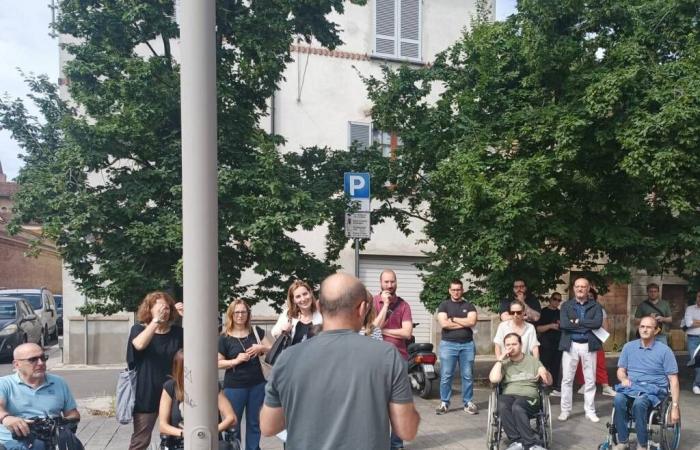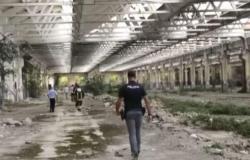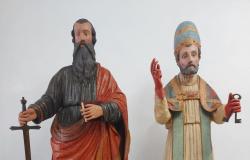A “urban walk” in a wheelchair to understand in the field the difficulties of moving and using urban public spaces for people with disabilities. In the various planned stages – in the squares and small squares of the historic centre, at the entrance to the museums of Palazzo Farnese, at the Passerini Landi library up to the offices of Palazzo Mercanti and the newly renovated public toilets in Piazzetta della Pescheria – the urban planning councilor Adriana Fantini was accompanied by a special delegation of people who every day they deal with architectural barriers and spaces designed in a decidedly non-inclusive way.
It took place on the morning of June 26th – foreseen by the Peba participatory path, the Municipal plan for the elimination of architectural barriers – with the participation of several technicians because the walk also had one precise educational value for public administration and beyond. “What we are carrying out this morning is a training course – explained Fantini – with twenty technicians from the various professional orders and the Municipality of Piacenza. During the relay we meet people with disabilities who alternate in the various stages envisaged and they point out to us the problems and corrections to be made in the dimension of the external public city. For example, at the Farnese we focused on the doorbells, access to the stairlift, through dialogue with the technicians who are already used to designing according to standards, but as we know sometimes they are not enough and reality exceeds the requirements”. In the Piazzetta della Ferma stop to which the photos refer, among others, people with disabilities from Geocart and Asp “Città di Piacenza” were present.
“The current regulations are very attentive to motor disabilities – Fantini pointed out – but sometimes there is less sensitivity for other types of fragility, talking with people who actually live there can be of great help because their contribution can be fundamental. We want to create a wealth of knowledge that allows us to write the new plan for the elimination of architectural barriersthere will be various files relating to about thirty kilometers of roads and a dozen public buildings with all the interventions that should be carried out and the budget. We will naturally leave the Peba as a legacy to future administrations, we cannot think that a city like Piacenza, passed from the Romans, from the Middle Ages to the Renaissance up to, can be the object of a complete transformation in an administrative mandate, that everything can be brought up to standard. But if we are able to build the toolbox to intervene, even those who come later will be able to act more effectively. We will do everything we can.” “The people with disabilities who accompanied us – she specified – were consulted thanks to the disability table and the councilor Nicoletta Corvi, we have given ourselves a method that can continue into the future”.
The walk started from Palazzo Farnese in the presence of fifteen technicians identified by the professional associations and five employees of the Municipality of Piacenza: all followed a pre-established itinerary through some predefined stages, among streets, squares and public spaces of the historic centre. Councilor Fantini specified that “the spaces were chosen after a journey built together, with places other than public ones, the museum, the street, the square, the town hall. All the observations collected will be included in the plan – Peba – which must be delivered by the technicians by the end of the year”. It was also created by the students of the “Cassinari” high school a special logo that will be used for all those urban spaces and buildings where barriers will be removed. The route makes use of the collaboration of numerous local associations involved by the guarantor Miriam Stefanoni and the municipal representative of Peba Alessandra Bonomini.









